

A recent Los Angeles Times editorial succinctly spelled out the simple truth about a potentially major labor case now before the U.S. Supreme Court. In Unite Here Local 355 v. Mulhall, a hospitality union is seeking to overturn a lower court decision favoring a supposedly disgruntled worker whose case just happened to be taken up by the National Right to Work Legal Defense Foundation.
The case’s backstory is a somewhat complicated tale involving a Florida union local’s attempt to organize workers employed by the operator of a casino and race track. That operator, Mardis Gras Gaming, accepted a “neutrality agreement” with UNITE HERE, in order to give the union access to Mardis Gras’ workers without management objections. The arrangement also allowed for what’s called a card-check election, which is often used to simplify union elections at businesses.
But one Mardis Gras employee,
» Read more about: Supreme Court Considers an Important Labor Case »


A recent Los Angeles Times editorial succinctly spelled out the simple truth about a potentially major labor case now before the U.S. Supreme Court. In Unite Here Local 355 v. Mulhall, a hospitality union is seeking to overturn a lower court decision favoring a supposedly disgruntled worker whose case just happened to be taken up by the National Right to Work Legal Defense Foundation.
The case’s backstory is a somewhat complicated tale involving a Florida union local’s attempt to organize workers employed by the operator of a casino and race track. That operator, Mardis Gras Gaming, accepted a “neutrality agreement” with UNITE HERE, in order to give the union access to Mardis Gras’ workers without management objections. The arrangement also allowed for what’s called a card-check election, which is often used to simplify union elections at businesses.
But one Mardis Gras employee,
» Read more about: Supreme Court Considers an Important Labor Case »


The U.S. Supreme Court’s new term, which began yesterday, could spell a world of hurt for working Americans. People who believe this aren’t simply looking at worst-case scenarios — in which, say, the conservative majority sides on every point with plaintiffs represented by the National Right to Work Legal Defense Foundation. No, their view rests on the conservatives’ well-established penchant for producing rulings that go far beyond the original cases before the justices – rulings that make laws that didn’t previously exist, grant awards that weren’t sought and answer briefs that were never filed.
But equally as ominous as the handful of labor-related cases that will start pleadings in November is McCutcheon v. Federal Election Commission, which began arguments today.
It seems like only yesterday that the high court, in Citizens United v. Federal Election Commission, pried opened a portal to a spending orgy by lifting limits on how much corporations and unions could contribute to election campaigns.
» Read more about: McCutcheon v. FEC: “Citizens United” on Steroids »


For the past seven days America has watched a government shutdown unfold, courtesy of the Tea Party-controlled House of Representatives – a moment of political vaudeville more worthy of the description “circus” than “theater.” Beginning this week, however, we may be in for the start of a truly Grand Guignol event befitting the Halloween season.
That’s because the Supreme Court will hear several key labor cases this term, along with yet another plea from billionaires to be allowed to purchase a larger share of the electoral process. Just as the shutdown has battered the economy and harmed countless Americans through its curtailment of Headstart programs, the closing of federal parks and suspension of government health programs, so could damage be done to the national welfare by a handful of pro-business decisions by the high court. If the present conservative majority continues to vote within its ideological groove,
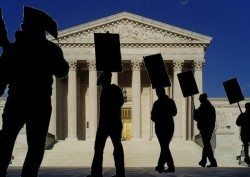
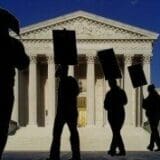
Union organizing could suffer a devastating blow by the U.S. Supreme Court this term.
In November, justices hear a case on labor-management “neutrality pacts” — agreements which spell out each side’s role in organizing. Usually, this means employers are barred from engaging in overt anti-union practices and accept some form of “card check” certification.
Unions use neutrality pacts to reduce the legal entanglements and employer intimidation that have become widespread in National Labor Relations Board-supervised elections.
After years of struggle, UNITE HERE, for example, recently pressured Hyatt Hotels to accept neutrality terms. And unions in Los Angeles, when possible, make such deals in return for support of large development projects.
It’s been a bad decade (and a bad half-century) for the American labor movement:
Union membership percentages continuing to slide, states restrict public sector bargaining and right-to-work laws have spread.
The case before the Court is technical and may not produce a sweeping ruling.
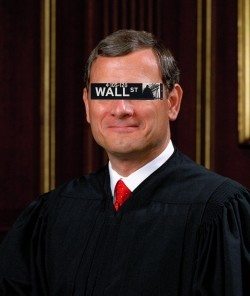

Two recent U.S. Supreme Court decisions involving especially high profile cases have garnered all the legal headlines. The Court’s watershed decision rejecting Proposition 8 and restoring the legality of same-sex marriage in California gave new rights to a significant portion of American citizens – and gave blue states something to shout about.
Days before, red states held their own party after a court majority ruled that the 1965 Voting Rights Act was unconstitutional because it relied on data from the 1970s that was supposedly outdated. Immediately, officials in North Carolina, South Carolina, Texas, Mississippi and Alabama – all states covered by the law – got to work adopting restrictions limiting the vote of the old, the poor and people of color.
Just before these two momentous decisions, however, when no one was paying attention, the high court gave the country to the corporations — again. The Supremes handed down a decision that curtailed the avenues that employees have used to redress instances of religious or racial discrimination.
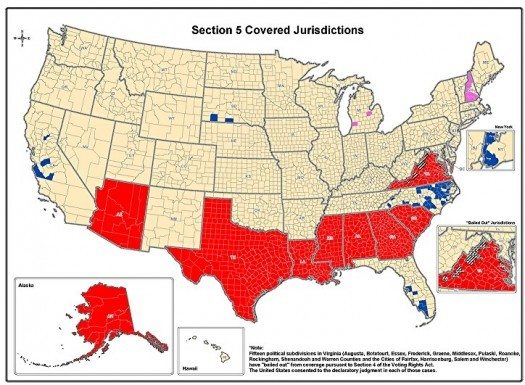
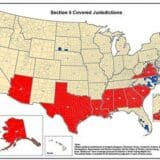
The Supreme Court’s activist conservative majority, in a 5-4 vote on June 25, threw out the provision of the 1965 Voting Rights Act which required states and localities (mostly in the Old Confederacy) to clear any changes in electoral law with the federal Department of Justice. The argument was that the criteria and standards used by Congress were obsolete. Congress is invited to revise them, but of course everyone (including the justices) knows that this Congress is too gridlocked to agree on anything of the sort.
But, to paraphrase the old saying, when the Court gives you lemons, make lemonade. As the Court’s opinion affirms, conditions surrounding voting in this country are now radically different than they were in 1965. The old Democratic Solid South with legal discrimination against African American voters has been replaced by a Republican hegemony that is adapted to black voting. At the same time,
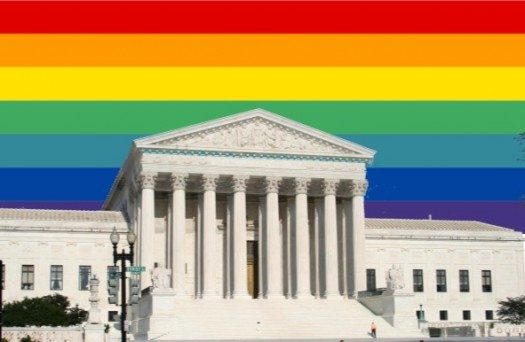
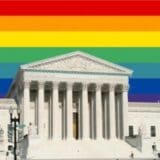
Wednesday’s Supreme Court rulings on same-sex marriage represented a major victory in the battle for social justice. But the Court stopped short of proclaiming same-sex marriage a basic right. It left it to the states to determine whether gay Americans have the same right to marry as their straight counterparts.
This is the same logic — states’ rights — that allowed the Court this week to weaken the Voting Rights Act of 1965, essentially giving states permission to discriminate against Blacks and Latinos in gerrymandering electoral districts and erecting obstacles to voting. Soon, we’re likely to see a number of Republican-controlled states, including Texas, redraw legislative boundaries to make it harder for minority candidates and white liberal candidates backed by minority voters (such as Texas State Sen. Wendy Davis, who courageously waged a filibuster this week to protect women’s reproductive rights) to win public office and to change state laws to make it harder for people to vote.
» Read more about: What the Supreme Court Didn’t Do for Marriage Equality »


Reactions to the Supreme Court’s ruling Tuesday that halts the use of a key provision in the landmark Voting Rights Act (VRA) included disappointment, motivation to continue community organizing and a sense that it was fair.
The Associated Press and Equal Voice News collected comments from elected officials and community leaders, who work directly on voter engagement issues and in key states affected by the Supreme Court’s decision.
President Barack Obama:
“I am deeply disappointed with the Supreme Court’s decision today… Today’s decision invalidating one of its core provisions upsets decades of well-established practices that help make sure voting is fair, especially in places where discrimination has been historically prevalent.”
Scott Douglas, executive director of Greater Birmingham Ministries in Alabama:
“Our deepest concern is that if a state like ours had the gall to pass voter suppression and racially-discriminatory laws under the scrutiny of Section 5 of the VRA,
» Read more about: Reactions to High Court’s Voting Rights Act Ruling »

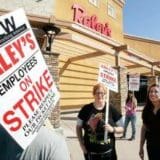
There’s power in the picket line. And employers know it.
That’s why, in 2008, Ralphs Grocery Company sued to have union picketers removed from the front of one of its non-union stores. But California has explicit laws to protect labor-related speech, and the court denied the request by Ralphs.
But that hasn’t stopped the grocery chain from continuing its courtroom battle to silence workers – even though they’ve lost just about every case. Last December, California’s Supreme Court upheld the ruling in favor of the picketers. Speaking for the California Supreme Court’s 6-1 ruling in the Union’s favor, Justice Joyce Kennard wrote that the 1975 state law and follow-up legislation passed in 1999 are
“. . . justified by the state’s interest in promoting collective bargaining to resolve labor disputes, and the understanding that the area outside the entrance of the targeted business often is the most effective point of persuasion.”
And last week,
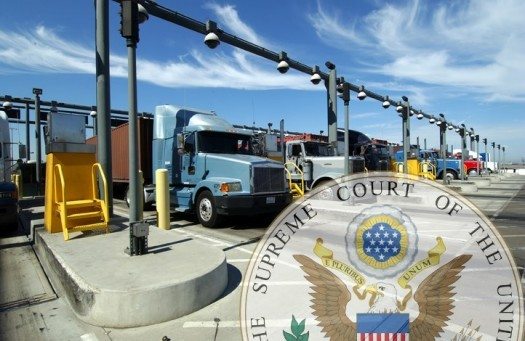
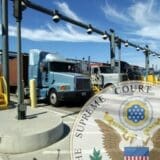
Last Thursday the U.S. Supreme Court ruled in a case that had the potential to impact millions of people in Southern California – people who have been breathing cleaner air thanks to the Port of L.A.’s Clean Truck Program. The Clean Truck Program is an innovative policy that has been successful in reducing port-related truck emissions by as much as 90 percent. But it has enemies, most notably the trucking companies who profited from the dirty, unregulated system as they worked on behalf of Walmart, Target, and every other big importer.
The national trucking lobby, on behalf of these firms, sought to kill the program by challenging it in court. As we passed environmental and public health milestone after milestone, the trucking industry filed legal motion after legal motion, and the case bounced between all levels of courts. But Thursday was the big one—the highest court in the land finally weighed in on the legality of the program overall.
» Read more about: Supreme Court Blocks Industry Bid to Kill Clean Truck Program »


Atop the list of landmark laws that conservatives have never particularly warmed to are two that established fundamental rights for workers and consumers: the 1935 National Labor Relations Act, which provided employees a legal path to form unions, and the 2010 Dodd-Frank financial reform, which established a Consumer Financial Protection Bureau to rein in banks’ abusive treatment of depositors and mortgage holders. Conservatives have never had the votes or the gumption to repeal these statutes. But now they can essentially neuter these laws.
[Last] Friday, three judges on the U.S. Court of Appeals for the District of Columbia Circuit — all nominated by Republican presidents — ruled that President Obama lacked the authority for three appointments he had made to the National Labor Relations Board (NLRB) during the break between Congress’s 2011 and 2012 sessions. Invoking the president’s power to make one- or two-year appointments while Congress is in recess — a power that presidents have exercised as far back as James Madison — Obama appointed two Democrats and one Republican in the face of continued Republican opposition to his previous NLRB picks.
» Read more about: Court Decision Could Cripple NLRB and Consumer Bureau »
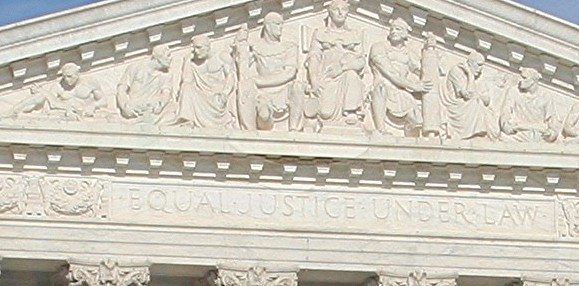
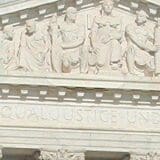
Lawsuits alleging wage and hour violations are on the rise, but a case currently before the Supreme Court could tilt the balance of power toward employers in wage theft cases.
The Supreme Court heard oral arguments in Symczyk v. Genesis Healthcare Corp. on Monday; the American Prospect summarizes the details of the case:
The case involves a lawsuit filed by Laura Symczyk, who alleged that Genesis Healthcare had committed wage theft against her and her co-workers. According to Symczyk, Genesis routinely docked the pay of workers (including herself) for lunch breaks that were not taken. Reflecting the strength of her claim, Genesis offered her $7,500 plus associated fees to settle. Symczyk, however, rejected the offer, believing that she was suing not just for herself but for her co-workers. She wanted time for her lawyers to determine if her case could be brought as a class-action suit,
» Read more about: Supreme Court Could Block Worker Class-Action Suits »
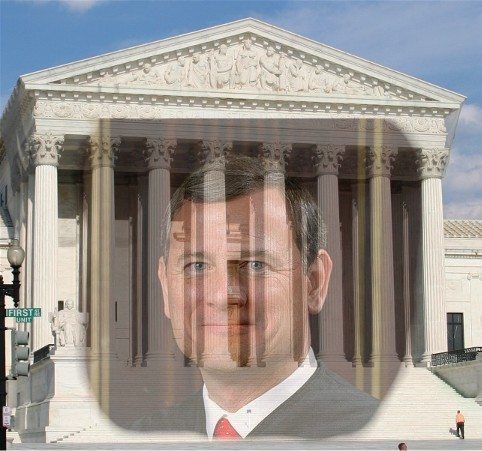

Right now former President George W. Bush, who appointed John Roberts as Chief Justice, must be having a Dwight Eisenhower moment.
When Eisenhower nominated California’s Republican governor Earl Warren to be the Chief Justice of the Supreme Court in 1953, he thought he was appointing a conservative jurist. Later, Eisenhower reportedly said that appointing Warren, who took the Court in an unprecedented liberal direction, was the “biggest damn fool mistake” he had ever made. (Warren is one of the people I profile in my new book, The 100 Greatest Americans of the 20th Century: A Social Justice Hall of Fame).
Chief Justice Roberts is a far cry from Earl Warren. Indeed, the Roberts court has been one of the most conservative in history.
But we can be grateful for Roberts’ decision to side with the 5-4 majority to uphold the Obama health care reform law.
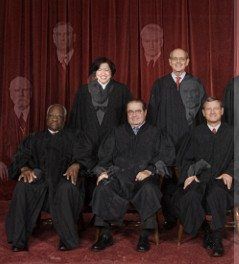
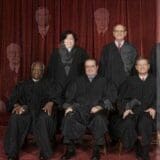
The 1936 Republican presidential candidate, Alf Landon, based his bid to defeat FDR on repealing Social Security. In a campaign speech Landon promised: “We must repeal. The Republican Party is pledged to do this.” That year’s election night tally revealed who was in touch with Americans and who wasn’t. FDR: 523 electoral votes; Landon: 8 electoral votes.
And another crazy coincidence. In 1937, U.S. Supreme Court Justice Owen ROBERTS switched his vote and found the Washington state minimum wage constitutional (from an earlier N.Y. case in which the high court had found the minimum wage unconstitutional).
Two weeks later, the Supreme Court found the National Labor Relations Act constitutional. Two days after that a U.S. Appeals Court ruled that Social Security was unconstitutional. Six weeks later, the Supreme Court found it constitutional.
» Read more about: Court Ghosts: And You Thought Obama Had It Tough »
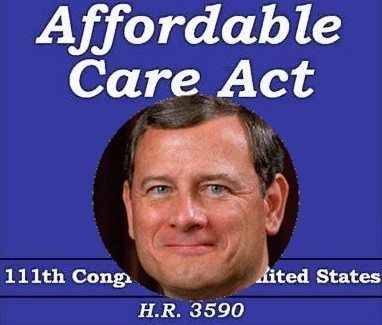

As Duke Law School professor Jed Purdy explained yesterday in his sensible, humane and far-sighted take on the Court’s decision on the Affordable Care Act:
“Justice Roberts’ opinion makes him a hero for a day to many liberals. It also moves the Court, at a stately pace, toward an aggressively right-wing view of the federal government’s power. Moreover, it keeps the Court at the very heart of issues where it does not belong. For all its obvious appeal, it is self-aggrandizing and far more radical in its reasoning than in its outcome. That reasoning may have serious consequences down the road.”
Purdy refers in part to Justice Roberts’ endorsement of a narrow view of the Commerce Clause shared by the dissenting justices (Kennedy, Alito, Scalia, and Thomas), who would have struck down the Act in its entirety. (Roberts allowed the individual mandate to stand on the strength of Congress’ constitutional power to tax.
» Read more about: Roberts Rules: Why the Obamacare Victory Is No Win »
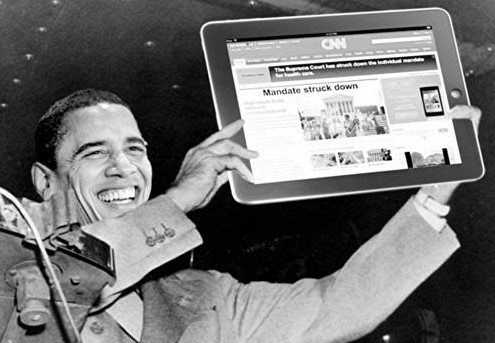

By a 5-4 vote, the U.S. Supreme Court has upheld most provisions of the Affordable Care Act. In the court’s most closely watched decision in decades, the majority ruled ACA’s provision mandating that individual citizens enroll in health-care programs was a constitutional imposition of a tax. On the other hand, the justices ruled against the expansion of Medicare.
A statement issued by California’s United Nurses Associations of California/Union of Health Care Professionals hailed the court’s decision. The statement quoted union Secretary-Treasurer Barbara Blake, RN:
“This is not just an abstract legal decision. Real lives and the heartbreak of real families will be saved because of it. We’ve got more people in California dying each year because they don’t have health insurance than any other state in the country. But thanks to the Affordable Care Act, the vast majority of us will be covered.”
See these stories:
New York Times (“HEALTH LAW STANDS”
Los Angeles Times (“Healthcare law upheld as a tax measure”)
Washington Post (“What the Supreme Court’s decision on the health-care law may mean for you”)
Talking Points Memo (“SUPREME COURT UPHOLDS ‘OBAMACARE’”
» Read more about: Split Court Vote Upholds Most of Affordable Care Act »

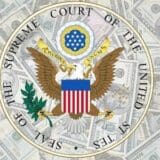
Last week the activist right-wing majority of the United States Supreme Court –in a radical departure from well-settled jurisprudence — further weakened the ability of labor unions to engage in meaningful political activity. The decision has been largely overshadowed by the Court’s ruling on Arizona’s S.B. 1070, and by its anticipated ruling on the Affordable Care Act. Yet, as far as the viability of the labor movement is concerned, the significance of this decision can scarcely be overstated.
In Knox v. SEIU, Local 1000, the majority opinion displayed an unprecedented level of concern for the First Amendment rights of a minority of public-sector employees – but only insofar as those rights limit the ability of labor unions to speak politically. The case arose from SEIU’s state-wide response to several anti-union voter propositions in California. The initiatives were announced after the union had already determined and sent out notices for dues for the coming year.
» Read more about: Crass Warfare: Supreme Court Attacks Unions »